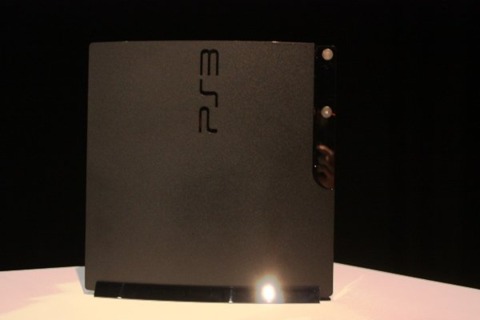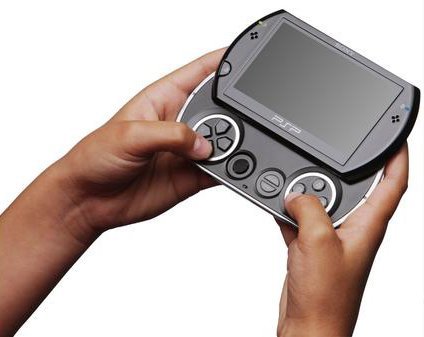Sony's Yoshida talks PS3 Slim impact
Q&A: Sony Worldwide Studios president says passing on savings to consumers, attracting broader audience behind GamesCom announcements.
Sony Computer Entertainment had a big day at the 2009 GamesCom in Cologne, Germany, yesterday. Holding a late press conference, the Japanese company did more than just unveil its long-rumored 120GB PS3 Slim; Sony also pulled the trigger on sought-after $100 price cuts to its current 80GB and 160GB PlayStation 3 SKUs. Sony also offered details on its plans for the PSP Go, due to launch October 1, and unveiled its "snackable" 100 MB PSP Mini store.

To get some perspective on how these announcements will affect Sony's strategy going forward, GameSpot spoke with Shuhei Yoshida, president of the game maker's Worldwide Studios division. Notably, Yoshida took over the role as head of SCE WWS in May 2008, following Phil Harrison's abrupt departure to (and short-lived tenure at) Atari parent Infogrames.
As part of GameSpot's chat with Yoshida--who speaks fluent English--the executive offered insight as to why Sony chose to introduce the PS3 Slim and cut the device's price at the same time. Yoshida also discussed the impact that the price cut will have on the mass-market consumer, especially in light of the PS3's upcoming camera-based motion-sensing capabilities, as well as who, exactly, the PSP Minis should appeal to when they come out.
GameSpot: A lot of people have been expecting a new slimmer PlayStation 3 and a price drop for some time. But I'm not sure if people were necessarily expecting both announcements to come at the same time. Why did you decide to tie these two announcements together, rather than make them separately?
Shuhei Yoshida: Well, this is something we thought about very naturally. A smaller, slimmer PS3 has a smaller number of components. It's much more efficient in terms of money spent to produce the same functionality. So it's a natural thing to pass on some of that savings to consumers.
GS: At what point did you guys decide that this was something that you were going to do?
SY: Well, we decided this many times. We have a road map and plans, and we constantly check and sometimes change and sometimes keep. This is something we have [had] in our plan for quite some time.
GS: What were the main factors behind the timing of this announcement? Obviously, like I said, it's something a lot of people have been expecting for a while. So, why now?
SY: Well, we looked at the current inventory situation for the PS3. And, also, we have to make sure the actual manufacturing goes smoothly and enough goods will be available on day one. So, with this announcement, we actually waited to make the final decision. We really wanted to find the sweet spot.

GS: How do you expect the new price to affect the market going into the 2009 holiday season?
SY: A lot! So, at E3, we talked about lots of exclusive games and content, and we are very, very proud of the games in the pipeline and very excited to see how these games will be received by consumers. However, if people feel the holiday price is too high for them to [cross that line], all the games that we have will be able to be enjoyed by these consumers. So, from a game development standpoint, this will have a huge impact to see the acceptance of our titles to as many consumers as possible. We would like to see these games enjoyed by not only the audience but also the more casual, broader mass market. So for these consumers, with these economic things going on, the $299 price point is very, very important.
GS: How do you expect the new motion-sensing controller to play into that market reach?
SY: Our primary initial goal and target is to make our games more approachable and create new experiences that are very easy to get into. So, in order for us to be able to target these audiences, again, the holiday price point was very crucial. So, to us, high tech is like a precursor to our shift to [visual]-based new motion-controller sensing technologies. So, this price drop is perfect timing before we launch the new motion-controller technology.
GS: Speaking of markets, what sort of audience are you targeting with PSP Minis? Is this aimed at more traditional players or are you going for a more casual audience like we've seen Apple achieve with its App Store?
SY: I think it's more appropriate to look at the usage patterns of consumers. You know, there are lots of casual games on the iPhone. But core gamers enjoy all kinds of content. So, core gamers spend money and spend time on consoles and big titles and at the same time, they try out new games on the iPhone. So, I think it's more about the people who have the more digital lifestyles; who want to carry with themselves the digital content and spend a small chunk of time to enjoy this content.
GS: Do you expect the games to be similar to some of the PlayStation 3 casual focused games? Or do you expect them to go in a different direction, maybe something more similar to cell phone games?
SY: I think in time, both will come. My hope is [developers] make a smart choice of not just moving content to PSP, but appropriately taking advantage of what the PSP uniquely offers [with its] real game interface.

GS: So, with the 100MB size limit, obviously the games will be much smaller, which also means that there could be a lot more games. How do you expect to manage the quality control of the games to make sure that consumers aren't overwhelmed by a huge number of games, which is one of the main critiques of the Apple App store?
SY: Well, I think quality is relative to what the expectations are and the investment that you make as consumers. As long as the game doesn't crash, as long as the game plays as intended, I think a wide variety of experiences is great. And, because of the reduced development investment, publishers will be able to price [games] at a very low price. So, for consumers, it's like having [to decide between] a cup of coffee at Starbucks or trying to purchase this small game. So if it doesn't work out, it's not such a big thing for those consumers. I think these smaller sized games will allow many different new types of games. And that's really helpful for the health of creativity.
GS: One of the other big announcements from the press conference was the digital comics service. Can you describe the origins of this idea, and specifically, did it start with the Marvel partnership? Or did that come later on down the line, after you had already developed it?
SY: The digital comic concept was before the partnership. It's great that we have this strong, very positive partnership with Marvel, and we are so ecstatic about that. There are many digital comics available on the PC or cell phone already, but from an experience standpoint--scanning the comic and turning pages--[they are] not taking the best advantage of these platforms. So, the motivation came from how to improve the experience so people who may own the original comic already might want to try it on the PSP as well. Only after we had the system working and [were] able to demonstrate what could be done, our teams approached the publishers, and they saw the potential in this new form of digital comics.
GS: Do you expect a different reaction between Western and Eastern audiences, with comics being much more mainstream in Japan?
SY: Yeah, absolutely. And when we [looked at] the Japanese consumer's lifestyle, the cell phone is everything. Lots of people's main Internet machine is a cell phone. And they also consume comics on the cell phone. That's obviously different from how people in the States or Europe use these cell phones.
Got a news tip or want to contact us directly? Email news@gamespot.com
Join the conversation